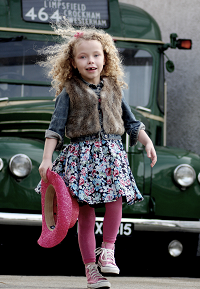Pushy tigers in helicopters?

Good old times
In the 1950s aged 12, I rode my bike from Liverpool to Southport, the Wirral or North Wales. In the 1980s I refused to let my daughters do anything of the sort! An online forum for Mums recently asked its members to record things that made their childhoods special. After parents, grandparents and siblings, the overwhelming majority specify the freedom to roam as having been very special indeed. Many contributors also regret that their own children will not have similar memories since the world is now unsafe.
Government Minister Nick Hurd says that over-cautious parents have created a “cotton wool culture”. His comments stem from research which suggests that a third of youngsters have never climbed a tree or built a den, and one in 10 children can’t ride a bike. Only 21% of children between 6 and 15 play outdoors near their home, compared to 71% of their parents. 60% of youngsters would rather watch TV or play computer games than play outdoors. The problem is that outdoor play experiences are essential for building attributes like independence, self confidence and self sufficiency.
The lack of these skills is noted by a commentator who suggests that people now are behaving like dependent children well into their twenties. She believes they see parents as personal bankers and a safety net through which they will not be allowed to fall. Our culture and media complicate matters by implying that success is easier to attain than it really is, with stories of success falling out of the sky on some lucky person. This causes a lot of anguish when people become anxious that their lives are ordinary, when they were “supposed” to become models, footballers, or successful business people.
The older generation supports such views from their own experiences. One observer comments, “We were told that as we made our bed, so we had to lie on it. We had to be useful within the family and neighbourhood. This taught us to pull our weight in the world.” Another person relates his childhood experiences, “I can’t remember any school being closed due to snow. Throughout the infamous winter of 1947 we donned our macs, caps and wellington boots and walked to school like every other day, even though the snowdrifts were higher than we were!”
East vs. West
While there is always the risk of rose tinted spectacles being worn, it is the case that 2500 jobs in England are currently being advertised in Romania, as employers believe that it is too difficult to recruit young people from this country with sufficient basic skills and the right attitudes to the workplace.
The Secretary of State for Education is certainly looking towards models of education in eastern countries as means of raising standards here. He compares the average 50% success rate for pupils in Britain with educational performance in Singapore, where 80% per cent of pupils achieve at least grade C in English, science and maths. He argues that there is a clear link between Britain’s chances of avoiding long-term economic decline with our success in improving educational performance, so he intends to implement changes.
An eastern view of parenting defined by “tiger mother” Amy Chua, insists that children should be pushed to excel at all costs. She uses a vocabulary of self-discipline, striving and excellence that would have been familiar to the people of the wartime generation quoted earlier. She demanded (and got) straight A’s from her two daughters and drilled them for hours every day on the piano and violin. They were not allowed to watch TV, be in a school play or have play dates with friends. She contrasts her parenting style with the “soft” and “forgiving” Western approach adopted by parents who are so worried about injuring children’s feelings that they over praise them for completing simple tasks. She believes real self-esteem grows only by mastering something difficult through hard work.
Helicopter parents
Perhaps the fears which limit children’s outdoor play and independent living are also leading us down other pathways. Another researcher reports that babies often have complex schedules like adults. She says it is not unusual that babies have a class every day. A teacher recently reported that parents of 3 year olds regularly approach her to enquire what is needed to ensure their children gain top Sats results and pass senior school entry exams. One study has suggested almost half of families now engage private tutors to prepare children for tests and entrance exams, and a further 30% coach their children at home.
A Head remarks that the most difficult people to deal with are parents who have an overwhelming ambition which is far beyond their child’s capacity or motivation. Certainly the rise of “pushy parents”, eagerly organising one activity after another in a desperate bid to ensure their child “succeeds”, is recognized to have removed many of the joys of childhood. Such children learn only to participate when things are organised for them, and often become more, rather than less dependent on adults.
It is certain that students with “helicopter parents” hovering over them and attempting to manage every aspect of their lives, tend to be less open to new ideas and actions, as well as more vulnerable, anxious and self-consciousness than their counterparts with more distant parents. In other words, all our efforts to be model parents doing the best for our children may simply be counter-productive.
Is there a price?
The emerging economies of the East have made educational achievement a major priority. Lately, however, there are frequent reports of student suicides. Experts in India believe parental and peer pressure, rising ambitions and fierce competition create unbearable pressures for developing minds. In Korea, many elementary schools have classes for 12 year olds continuing after 8pm because the Government publishes test scores and then uses the results to evaluate schools and issue bonuses to teachers. Japanese parents use private “crammer schools,” where children spend many hours beyond the normal school day supplementing their studies and preparing for entrance exams. When the Japanese government tried to reduce student workloads, it met criticism from parents concerned about the country’s drop from first to fourth place on the international mathematics test. Japan also has problems with student breakdowns and suicides. Many students in South Korea, fear their final test, which lasts eight hours and determines which university they enter. The final year leading up to those tests is seen as making or breaking their whole future. We might well ask our Ministers if this is what we want for our children, when already, an expert in child development reports that middle-class parents are now treating play as a “luxury” that children can do without in favour of early academic education. In this country of course, we already have Government targets set for our nursery children.
From a decision maker to an advisor
What is most beneficial to children, regardless of culture, are high expectations and clear boundaries established in a warm and loving family environment. It’s long been accepted that for a child to grow up well adjusted and achieving well, is directly related to the amount of time parents spend with that child. However, we cannot live our children’s lives for them, and so we must let them find their own levels, and rejoice in their differences.
We also must learn how to let go progressively, as we guide children through the stages of life from childhood into independence. When children are born, start school, move to secondary school, or go to college, university or into work, so our role as parents has to shift from decision maker to that of advisor. Experiencing these different stages is a challenge for most children, and each stage requires different styles of parenting, as we try to set them on the road to independence, always acknowledging that the more we do for them, the less room they have to do things for themselves.
There is no formula for being a successful parent as every family and every child is different. Perhaps though, we can all accept that steadily letting go lies at the heart of our role as parents. We provide a safe and secure place from which children can embark on their own pathways to independence. As they change and develop, so our relationship will inevitably evolve.
 |
| Photo by: Sarah-Jane King |
Why should we expect that our children are fulfilled at every level, for every hour of the day, sometimes at the expense of family happiness and our own personal lives? If we really don’t want pressures on our children perhaps we ought to start by reducing the pressures on ourselves, by seeking to provide more of the simple things that are acknowledged to have made delightful childhoods for previous generations: people to meet; spaces to explore; books to read and discuss; time to spend with parents and grandparents. To achieve this we might reduce the time in front of screens and replace it with the basic experiences of grass and sand, trees and mud, that encourage exploration and leave most to their imaginations: set them achievable challenges and goals: give them time and space to experience and respond to the world around them: hug them when they fail and point them again in the direction of success; share ourselves with them through talking about everything the world has to offer: and stop worrying that we aren’t doing it properly, as nobody can do it better!







